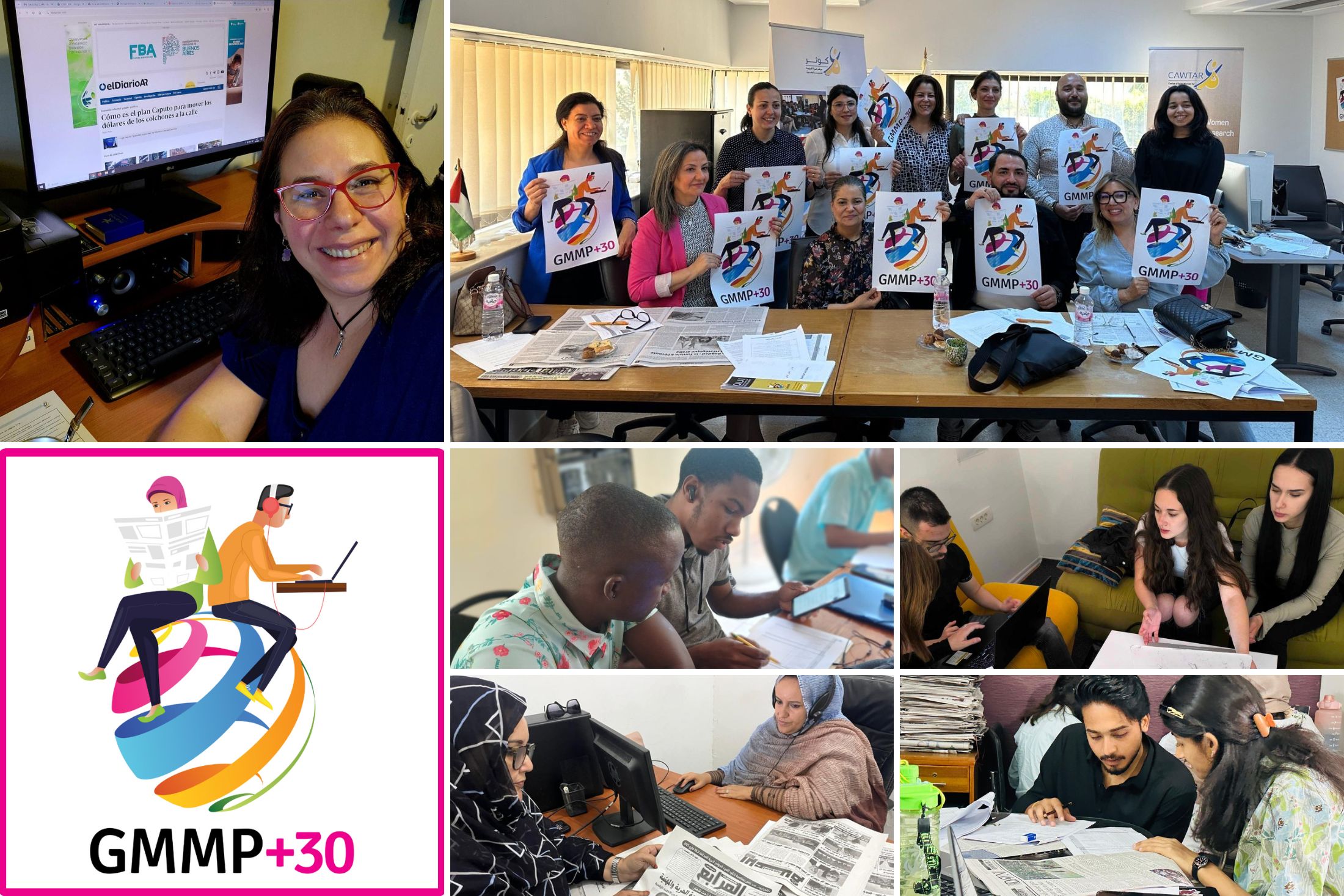
09 May 7th Global Media Monitoring Project takes pulse of gender in media worldwide
Thousands of volunteers gathered evidence of representation and portrayal of women and men in the news in some 120 countries on Tuesday during the 2025 Global Media Monitoring Project (GMMP).
Held 30 years after the inaugural GMMP, the 2025 edition of monitoring was the seventh in the largest and longest longitudinal study on gender in the world’s news media. The GMMP is conducted by WACC Global every five years.
The GMMP examines selected indicators of gender bias, stereotyping, and women’s presence in relation to men in print, broadcast, and online content. The statistical and qualitative data on gender inequalities perpetuated in and through the news, power advocacy worldwide for evidence-based change in media policy and practice.
Statistical evidence for change
Media both reflect societal perceptions and shape discourse and behaviour, says Dr. Sarah Macharia, GMMP Expert Advisory Group leader and outgoing global coordinator.
“It is crucial to have concrete data about who is making the news in order to identify areas of concern and to direct future action towards achieving gender equality in and through the media.”

Macharia reports that past editions of the GMMP have painted a picture of a world in which women, half of the global population, are virtually invisible in the news.
“The 6th GMMP, in 2020, determined that, without change, it will take at least 67 more years to close the average gender equality gap in traditional news media worldwide.” she says.
The gender and media expert notes that GMMP+30 extends the time series data collected since the first edition in 1995. New data on contemporary global priority concerns will be generated, including the gender dimensions of news reporting on technology-facilitated gender-based violence, on artificial intelligence, and on climate change.
Contributing to global advocacy for gender equality in media
The GMMP responds to key global recommendations on gender equality in media communications, including Section J “Women and the Media” of the 1995 Beijing Platform for Action adopted at the Fourth United Nations (UN) World Conference on Women.
Preliminary results of the 7th GMMP will be presented at the UN General Assembly in September as a vital contribution to the UN’s 30-year review of Beijing Platform implementation.

The GMMP’s extensive data over 30 years provide a key indicator for the review of this global roadmap to gender equality, says WACC Deputy General Secretary Sara Speicher.
“In addition to addressing women’s representation in the news, the data also reflects in many ways how trends at all levels of society are impacting how women are seen and involved in society. This evidence is essential for targeting effective action towards a world of justice and equality.”
Media monitors throughout the globe
News media monitoring in GMMP+30 took place in-person and virtually in eight global regions.
The committed, enthusiastic work by volunteer monitors – civil society activists, media professionals, university researchers, and students – reflects the vibrancy and dedication of the worldwide network, says Rod Molina, GMMP global coordinator.
In a world where backlash against gender equality grows louder, where wars rage and economies falter, this network of volunteers – scattered across more than 100 countries – has once again done the extraordinary, according to Macharia.

“For thirty years, through every kind of upheaval, they have shown up. They have trained, debated, and burned the midnight oil to track how the news media sees – or ignores – women,” she says.
Their work is not just about numbers, adds the gender and media expert. It’s about holding up a mirror to an industry that shapes how society understands power, value, and who matters in the world.
“I am in awe of the network’s stubborn, unshakable belief that another kind of media is possible. One that does not erase women’s labour, their voices, or their futures. To every volunteer, every ally: thank you for refusing to look away.”
Top photo: GMMP+30 media monitors in Argentina, Bosnia and Herzegovina, Haiti, Mauritania, Pakistan, and Tunisia.
Highlights of GMMP+30 global findings are expected in early September, followed by the launch of the comprehensive global report in late November. The GMMP in 2025 is being supported by UN Women and the Pacific Media Assistance Scheme (PACMAS).

Sorry, the comment form is closed at this time.